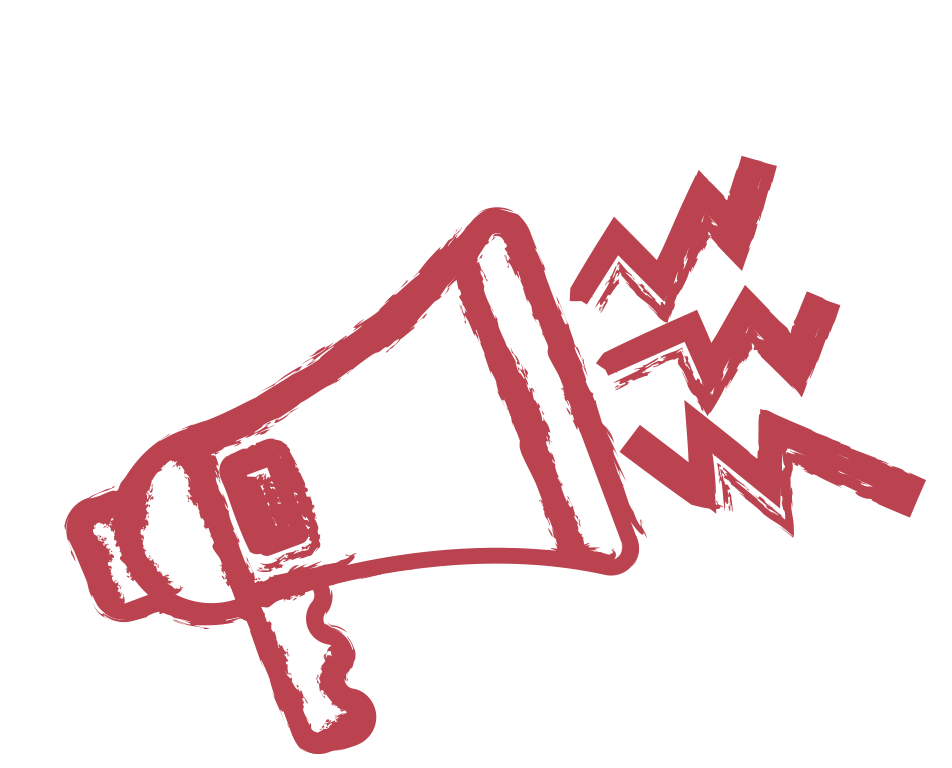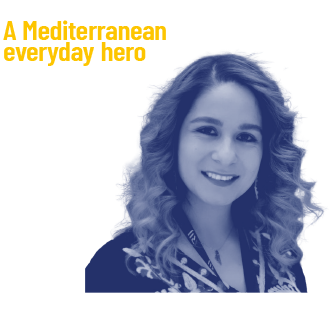
Disinformation and misinformation
The spread of disinformation and misinformation poses a challenge to informed decision-making and social cohesion in the Mediterranean, eroding trust and sowing discord. We must arm ourselves with knowledge and vigilance to combat the spread of falsehoods by promoting media literacy, fact-checking, and transparency when disseminating information.
Saja Mortada
For the past four years, investigative journalist Saja Murtada has been waking up in her home with a crucial mission: combat media disinformation in the Arab region.
Saja brings over a decade of experience in media coverage and investigative journalism with leading Lebanese and international institutions, along with continuous academic pursuits and a deep passion for journalistic and research work.
She manages the Arab Network for Fact-Checkers (AFCN), coordinated by the Arab Reporters for Investigative Journalism (ARIJ) network. The AFCN was established at the end of 2020 following the fake news campaigns that coincided with the COVID-19 pandemic. Since then, the AFCN has been supporting institutions and independent fact-checkers in sixteen Arab countries by developing skills, providing protection, networking, and fostering innovation. It currently includes forty-one institutions or initiatives and over two hundred and fifty fact-checkers, reaching millions of readers in the Arabic-speaking world.

“I use the term combating disinformation, not eliminating it, because we will never be able to end the spread of false or misleading information. It will always exist as long as there are individuals and entities working for their own interests. What we can do is reduce the spread of this disinformation and its impact on people as much as possible.”
Challenges of Fact-Checking in the Digital Age
Fact-checking is not new to journalistic practices, but it was long confined to newsroom production and publishing. Today, with the spread of social media, the expansion of “citizen journalism” (news publishing by non-professional journalists), and the advent of AI and deepfake tools, fact-checking has become a “daily task in all spaces” that ordinary readers cannot easily manage, as Saja mentioned during our meeting.
Fake news and disinformation are considered a “clear and present global threat,” according to UN Secretary-General António Guterres’ report, as they contribute to spreading hatred, misleading public opinion, deepening polarization, threatening democratic structures and human rights, and undermining public health policies and knowledge about climate change.
Many analysts theorize about the “post-truth era” that many societies around the world and the Arab region are experiencing.The term refers to when society’s engagement with fundamental issues shifts from facts to judgments based on emotions or personal beliefs. Disinformation plays a crucial role in this shift, as it exploits people’s fears and emotions to achieve specific goals.
The Story of the Arab Network for Fact-Checkers
Following the disinformation campaigns during the COVID-19 pandemic, Saja told us that the Arab Reporters for Investigative Journalism network conducted numerous studies on the state of fact-checking in the Arab region compared to international experiences. “Based on these studies and conclusions, which highlighted the needs and challenges, we realized the necessity of establishing the AFCN to support and develop fact-checking institutions and practitioners and contribute to expanding the field in the Arab world,” Saja described.
After regional and international reviews, the network established a code of principles that members, both institutions and individuals, must adhere to as a condition of membership. The code outlines the professional and ethical foundations of fact-checking, such as fairness, objectivity, respect for intellectual property, and cooperation. The network also requires member institutions to be transparent about their funding (if not publicly disclosed, they must disclose it to the network’s management) and maintain independence in managing journalistic work.
Services of the Arab Network for Fact-Checkers
The services provided by the AFCN encompass four main areas: skill development, protection, networking, and innovation.
- Skill Development: The network trains journalistic institutions and fact-checkers through mentoring sessions, closed and open online training courses. It also trains members on the code of fundamental principles and develops their capabilities based on changing challenges.
- Protection: Saja emphasizes the network’s priority on protection and security: “For us, protecting the journalist or fact-checker is more important than any journalistic story or fact-checking process.” The network provides support for the latest digital protection tools and methods for devices and data, enhances fact-checkers’ skills in protecting themselves during wars, demonstrations, arrests, and security pursuits. It also contributes to psychological support through individual or closed group spaces, as well as legal protection by assisting members in case of need for legal advice and representation or registration processes if necessary.
- Networking: The network aims not only to introduce fact-checkers to each other but also to promote a culture of positive competition and cooperation. The network organizes quarterly regional meetings for its members and other experts and international networks to share the latest experiences and expertise. It also provides electronic platforms for continuous coordination and creates joint projects among members, such as election campaigns or wars with regional impact. The network also meets annually in person on the sidelines of the ARIJ conference held in Amman, Jordan, where about a hundred fact-checkers gather for networking, cooperation, and learning.
- Innovation: The fourth and final area of services provided by the network is knowledge and digital innovation. In a complex digital reality with a vast flow of information, the network provides many digital tools, especially those using artificial intelligence, and localizes many smart applications and makes them available for free to members. The network also offers a chatbot via WhatsApp available to the general reader to fact-check any news available online, currently analysing about a hundred news items monthly, according to Saja.
Despite the AFCN’s young age, Saja recounts its impact over nearly four years. The network has trained more than three thousand professionals to date, contributed to developing methodologies for some fact-checking institutions in the Arab world, and helped some obtain membership in the International Fact-Checking Network.
“There is a tangible change in awareness of disinformation in the Arab region due to the network’s efforts, which not only work with its members from fact-checking institutions and professionals but also with media institutions, universities, non-profit organizations, and even the general public to raise awareness about fact-checking on social media. We have become a reference for all media institutions in the Arab region and media colleges that need training or information on fact-checking, and we have become known internationally.”